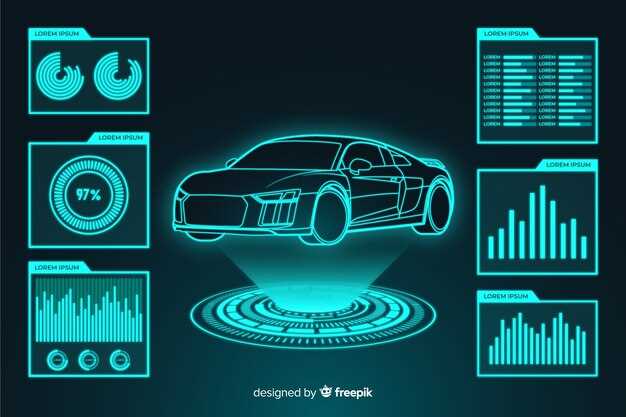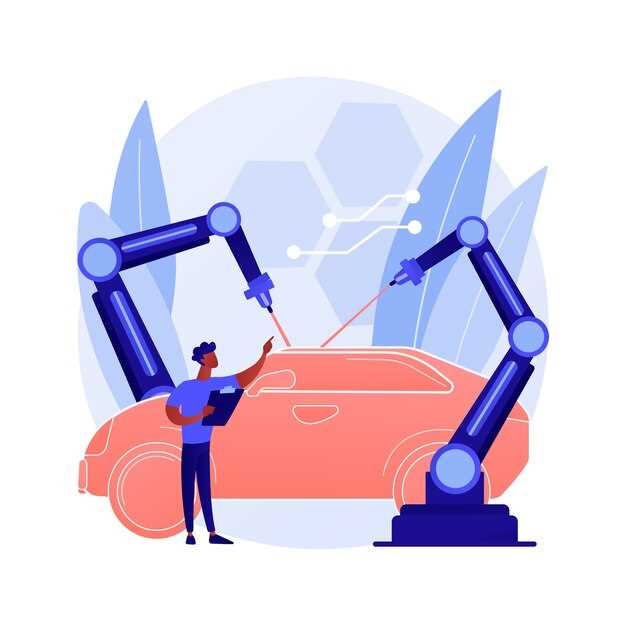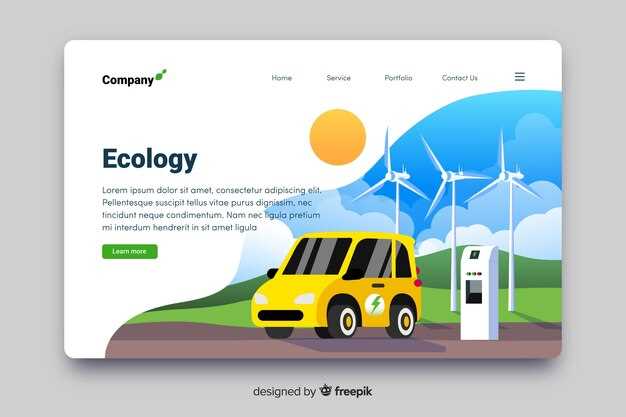Consider integrating blockchain technology into your car sales and ownership processes for enhanced transparency and efficiency. By leveraging a decentralized ledger system, stakeholders–buyers, sellers, and manufacturers–experience secure transactions that reinforce trust while minimizing fraud risks.
Incorporating blockchain enables seamless tracking of a vehicle’s history, from production to ownership transfers. This capability not only helps buyers make informed decisions but also bolsters resale value through verified documentation. An estimated 55% of consumers express increased confidence in their purchases when vehicle histories are transparent, showcasing how critical it is to implement this technology.
Additionally, flipping the traditional sales model on its head, blockchain opens pathways to peer-to-peer car sales. Consumers can interact directly, eliminating dealership fees while retaining a portion of the sales price. This disruption in the market not only empowers buyers but also encourages competitive pricing, benefiting everyone involved.
As the automotive industry embraces these advancements, businesses will want to consider partnerships with blockchain developers to create customized solutions. This collaborative approach can streamline operations, improve customer experiences, and ultimately drive sales growth, shaping the future of car ownership.
Enhancing Transparency in Vehicle History Tracking
Implement blockchain technology to securely document vehicle histories. Each transaction, including ownership changes, maintenance records, and accident reports, becomes immutable and easily accessible. This transparency builds trust between buyers and sellers.
Utilize QR codes linked to the blockchain for quick access to a vehicle’s history. Prospective buyers can scan the code to retrieve comprehensive information, promoting informed purchasing decisions. This method reduces reliance on potentially inaccurate third-party reports.
Adopt a standardized format for vehicle history records on the blockchain. Consistency in data presentation helps users quickly understand key details about mileage, repairs, and service history. Creating a clear and user-friendly interface facilitates faster transactions.
Encourage partnerships among manufacturers, dealers, and service centers to systematically update blockchain records. Regular updates ensure that the vehicle history reflects the most current information, thereby enhancing credibility and safety. Utilize smart contracts to automate record updates when certain conditions are met.
| Data Type | Description | Benefit |
|---|---|---|
| Ownership History | Chronological list of previous owners | Verifies authenticity and reduces fraud |
| Maintenance Records | Detailed logs of all service work | Informs buyers of the vehicle’s condition |
| Accident Reports | Records of any incidents reported | Increases buyer confidence in vehicle safety |
Implement a feedback system for buyers and sellers to review transactions related to vehicle sales. Ratings and reviews contribute to the credibility of users on the blockchain, creating a transparent marketplace.
Focus on educating consumers about the benefits of blockchain in vehicle history tracking. Workshops, webinars, and informational content can demystify technology, empowering buyers to make confident decisions. This enhances the overall trust in the sales process.
Streamlining the Car Buying Process with Smart Contracts
Integrate smart contracts into the car buying process to enhance security and transparency. Smart contracts automatically execute transactions once predefined conditions are met, reducing the risk of fraud. For instance, a smart contract can transfer ownership as soon as the buyer’s payment is confirmed, eliminating delays associated with manual processes.
Ensure that all vehicle history is recorded on the blockchain. This includes maintenance records, previous ownership, and accident history. Providing potential buyers with secure, tamper-proof access to this information builds trust and fosters informed decision-making.
Use cryptocurrencies for transactions. Accepting digital currencies not only speeds up payment processing but also appeals to a growing segment of tech-savvy consumers. By integrating cryptocurrency payment options, dealerships can attract a wider customer base and streamline financial transactions.
Automate title transfers through smart contracts. By linking the contract to the vehicle identification number (VIN), the title can be seamlessly transferred once all conditions are fulfilled. This reduces paperwork and minimizes the chance of errors during the transfer process.
Implement a verification process for users. Smart contracts can authenticate buyers and sellers through digital identities on the blockchain, ensuring all parties are legitimate. This process enhances confidence and security within car transactions.
Utilize smart contract templates to standardize agreements. Templates can include clauses specific to the car’s condition, warranties, and financing terms. This standardization minimizes legal disputes and simplifies negotiations.
Encourage partnerships with insurance companies that recognize smart contracts. By linking insurance policies with smart contracts, buyers can receive immediate coverage upon purchase, streamlining the process from financing to insuring. This creates a seamless experience for customers.
Facilitating Fractional Ownership Models through Blockchain
Implement blockchain technology to enable fractional ownership of vehicles. This method allows multiple parties to own shares in a single vehicle, lowering the financial barriers for buyers. It streamlines transactions and provides a transparent ledger for all stakeholders.
Consider the following strategies for implementing fractional ownership using blockchain:
- Smart Contracts: Utilize smart contracts to automate agreements between owners. These contracts can define usage rights, payment schedules, and responsibilities, ensuring clarity and reducing disputes.
- Tokenization: Issue digital tokens representing shares of the vehicle. These tokens simplify the buying and selling process, enabling smooth transfers between owners without the complexities of traditional paperwork.
- Shared Access Management: Create a system for managing access to the vehicle through a decentralized application (DApp). This allows owners to share the vehicle’s availability and booking processes seamlessly.
- Marketplaces: Develop online marketplaces for fractional ownership. These platforms can connect potential buyers with sellers, facilitating the exchange of ownership stakes and rights.
- Regulatory Compliance: Stay informed about regulations in your region. Collaborate with legal experts to ensure that your platform complies with ownership laws and consumer protection regulations.
Adopt these strategies to enhance user experience and trust in fractional ownership models. By leveraging blockchain, you provide a secure and efficient framework that benefits both individual and collective vehicle ownership. This innovation not only expands access to car ownership but also enhances the market dynamics significantly.
Reducing Fraud in Car Sales Transactions
Implement a blockchain-based system to enhance transparency in car sales. This approach ensures that all transaction records are immutable and easily accessible. By utilizing a decentralized ledger, both buyers and sellers can verify the vehicle’s history, including ownership changes and accident reports.
Use smart contracts to automate agreements and conditions for sales. These contracts execute automatically when predefined conditions are met, reducing the potential for manipulation or misunderstandings. This technology assures that funds are only transferred once all criteria, such as title transfer and inspection, are satisfied.
Encourage buyers to access verified data from the blockchain before making a purchase. Platforms can integrate tools that allow potential buyers to check the authenticity of vehicle listings and ensure sellers are legitimate. This process not only builds trust but also minimizes the chance of scams.
Offer training and resources for dealerships on blockchain technology. Educational programs can equip sellers with knowledge on how to leverage this system effectively. Understanding the benefits of blockchain can motivate dealers to adopt these practices, ultimately reducing fraudulent activities.
Promote collaboration between manufacturers, dealerships, and law enforcement on a shared blockchain platform. This collaboration can lead to real-time sharing of information regarding stolen vehicles or fraudulent activities, increasing the likelihood of apprehending offenders.
Implement user-friendly interfaces for blockchain applications to promote wider adoption among consumers. Simplifying the process of accessing vehicle history and transaction details encourages participation, further decreasing fraud risk in the car sales environment.
Encourage regular audits of blockchain systems used within the automotive industry. Independent verification of transaction integrity can help identify vulnerabilities and maintain trust in the technology, supporting its long-term effectiveness against fraud.
Improving Supply Chain Management for Automotive Manufacturers
Implement blockchain technology to enhance traceability and transparency in your supply chain. By recording every transaction on a decentralized platform, you can ensure that all stakeholders have access to accurate information about the origin and journey of parts used in vehicle manufacturing. This reduces fraud and improves trust among suppliers, manufacturers, and customers.
Adopt smart contracts to automate processes and facilitate quicker payments throughout the supply chain. These self-executing contracts trigger payments automatically once predetermined conditions are met, reducing delays and errors in transactions. This approach can significantly speed up the procurement process and cut administrative costs.
Utilize real-time data analytics to monitor inventory levels and predict demand more accurately. Integrating IoT devices with blockchain allows for continuous tracking of materials and parts. Accessing real-time data can help you maintain optimal stock levels, reduce excess inventory, and prevent production delays caused by shortages.
Collaborate with suppliers by sharing insights from blockchain analytics. Jointly analyzing data can reveal opportunities for cost reduction and process improvement. Establishing open lines of communication fosters a collaborative environment, enabling quicker decision-making and agile responses to market shifts.
Implement a decentralized logistics model to improve delivery processes. By coordinating directly with logistics providers through a blockchain network, manufacturers can track shipments in real time. This approach minimizes the chances of delays, enhances accountability, and optimizes transportation routes.
Invest in training programs for staff to ensure they are well-versed in the technology and processes associated with blockchain. Employees equipped with the right knowledge will make the most of these innovations, driving further improvements in supply chain efficiency.
Shaping Future Mobility Solutions with Decentralized Identity
Integrate decentralized identity to enhance user control over personal data in mobility services. Users gain the ability to share verified information, such as driving history and vehicle ownership, without compromising privacy. This transparency boosts trust among buyers and sellers in the automotive marketplace.
Implement blockchain technology to create tamper-proof records of vehicle history. This feature significantly reduces instances of fraud while simplifying the sale and purchase processes. Potential buyers can easily verify a vehicle’s past, simplifying decision-making.
Encourage collaborations between car manufacturers, dealerships, and tech companies to develop decentralized platforms that streamline the sales process. Such platforms can automate escrow services, ensuring secure transactions between parties. Smart contracts enforce agreed-upon terms, reducing delays and improving reliability in transactions.
Facilitate integration with insurance services, allowing users to manage their policies through a single identity interface. When a user updates their vehicle data, insurance providers can instantly access this information, adjusting premiums based on real-time data. This agility improves customer experience and fosters competitive pricing.
Promote user education on decentralized identity and its advantages in mobility solutions. Organize workshops and webinars showcasing real-life case studies where decentralized identity has successfully transformed operations. This approach will drive interest and adoption among stakeholders in the automotive industry.
Encourage governments to establish regulations that support decentralized identity initiatives. Clear guidelines can pave the way for innovation while ensuring user protection. Policies should incentivize the development of decentralized platforms focused on enhancing security and transparency in car ownership and sales.






